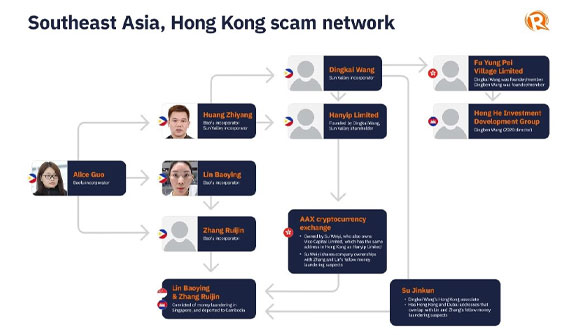
P460 Billion Lost to Scams in PH, Link to POGO Operations Explored
In recent years, the Philippines has witnessed a staggering rise in scam operations, with the Global Anti-Scam Alliance (Gasa) reporting that Filipinos lost approximately $8.1 billion, or nearly P460 billion, in the past year alone. This alarming figure underscores the growing threat posed by various scams, primarily text messaging frauds that promise too-good-to-be-true deals.
According to Gasa’s study titled “The State of Scams in the Philippines 2024,” the estimated losses from scams equate to around 1.9 percent of the nation’s gross domestic product. On average, each victim lost about $275, or roughly P16,000. The data reveals that nearly 39 percent of surveyed Filipinos reported having lost money to scammers. Disturbingly, only 3 percent of victims successfully recovered their funds, while 78 percent attempted but failed to do so.
The study, conducted in partnership with antiscam service providers ScamAdviser and Whoscall, highlights a worrying trend. It found that 67 percent of respondents encountered scams at least once a month, with half of them noting an increase in scams over the past year. “Scams in the Philippines have reached an alarming level,” stated Aaron Chiou, product director at ScamAdviser.
The Mechanics of Text Scams
The vast majority of scams—approximately 85 percent—are executed through text messages, which have surged by 10 percent since 2023. These messages often lure unsuspecting individuals with enticing offers, such as fake job opportunities or lottery winnings. Victims are then directed to fraudulent websites where they unwittingly provide sensitive personal information, including bank account details and addresses. This information allows hackers to gain access to victims’ financial accounts, leading to significant monetary losses.
The study emphasizes that many Filipinos fall prey to these scams due to attractive offers and a tendency to act hastily. Even those who harbor doubts about the legitimacy of the offers often choose to take the risk. Despite this, about 41 percent of respondents claimed they tried to verify the legitimacy of the links before clicking, particularly when the offers seemed too good to be true.
The speed at which these scams operate is alarming. According to the study, 76 percent of scams are completed within 24 hours of initial contact with the victim. Approximately 67 percent of victims realize they have been scammed on their own, while others rely on confirmation from banks, telecom companies, or government agencies.
The Connection to POGO Operations
Interestingly, the surge in text scams has been linked to Philippine offshore gaming operators (POGOs), which were banned by President Ferdinand Marcos in July.
“It is reasonable to think that some POGO scam operations might be behind domestic scam operations,” said Infrawatch PH convener Terry Ridon in an interview with the Inquirer.
Senators Risa Hontiveros and Sherwin Gatchalian previously noted a decline in scam messages following the crackdown on POGOs, further reinforcing suspicions about their involvement in illegal activities.
“While there might have been a marked decline in text and online scam operations in the last few months, it has not completely stopped. It is more accurate to describe it as more of a pause, as spoofing and scamming operations continue despite the SIM (subscriber identity module) card registration law and the POGO crackdown,” Ridon explained. He pointed out that spoofing and other scam operations persist despite efforts like the SIM card registration law, aimed at removing the anonymity that allows these scams to flourish.
In an attempt to combat these scams, the Philippine government has implemented measures such as the SIM card registration law. This law requires mobile users to register their SIM cards, effectively reducing anonymity and making it easier for authorities to track down scammers. However, experts warn that while these measures have had some effect, they have not eradicated the problem.
Emerging Threats: AI and Cybercrime
As technology evolves, so do the tactics used by scammers. Chiou raised concerns about the emerging threat posed by artificial intelligence in cybercrime. AI has the potential to enhance the sophistication of phishing attacks, making them more difficult to identify. A study by Forrester Consulting found that 51 percent of respondents in the Asia Pacific region agreed that AI could make phishing scams more effective.
PLDT’s chief information security officer, Angel Redoble, echoed this sentiment, explaining that AI-generated emails are becoming increasingly polished and personalized. These emails mimic human writing styles, making it harder for recipients to discern their authenticity.
To counter these threats, Chiou stressed the need for companies to invest in advanced scam detection technologies. He also urged telecommunications companies and banks to create more straightforward reporting mechanisms for scams, allowing victims to report incidents swiftly and effectively.
Read related article: POGO Ban Has Led to Decrease in Text Scams, Says Senator Grace Poe
Other Interesting Articles
 Aurora dethrones Team Liquid PH during MPL Philippines Season 14 playoffs
Aurora dethrones Team Liquid PH during MPL Philippines Season 14 playoffsOct 17, 2024











